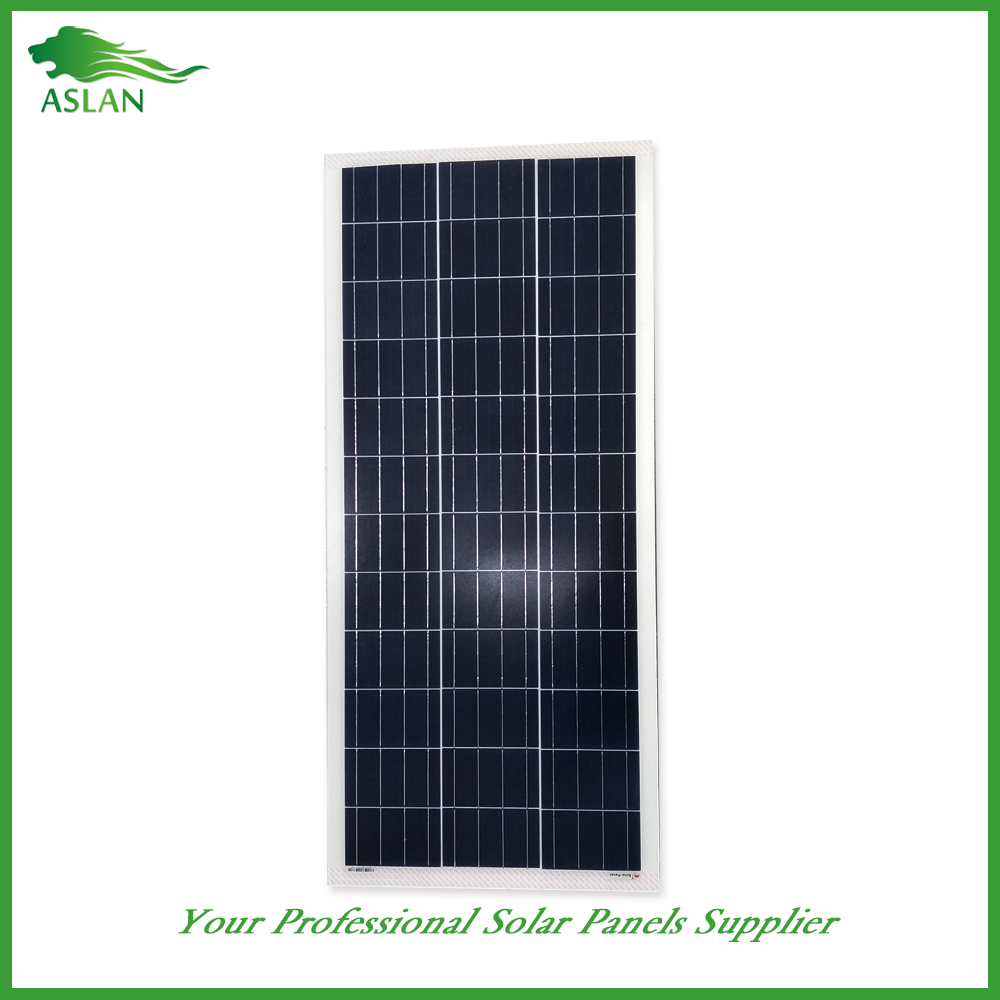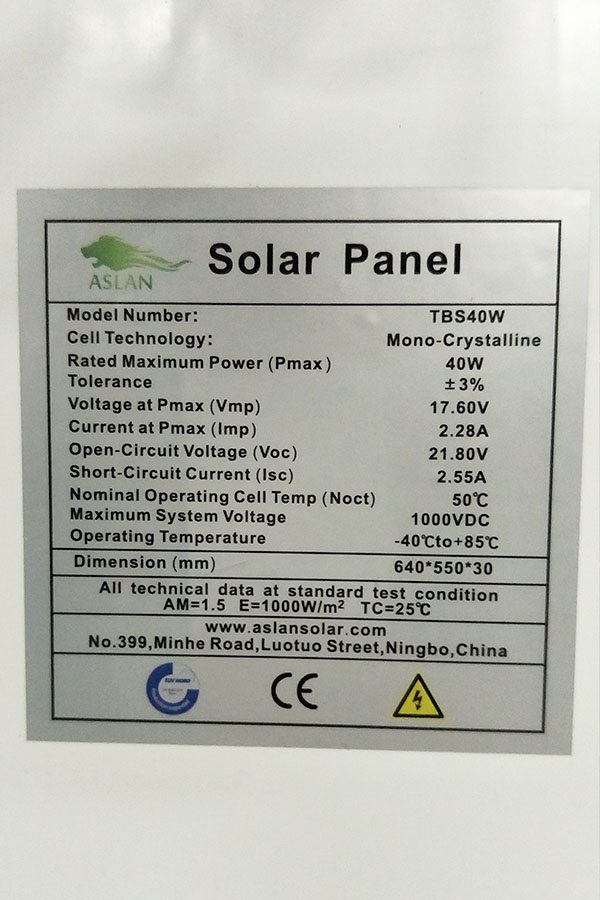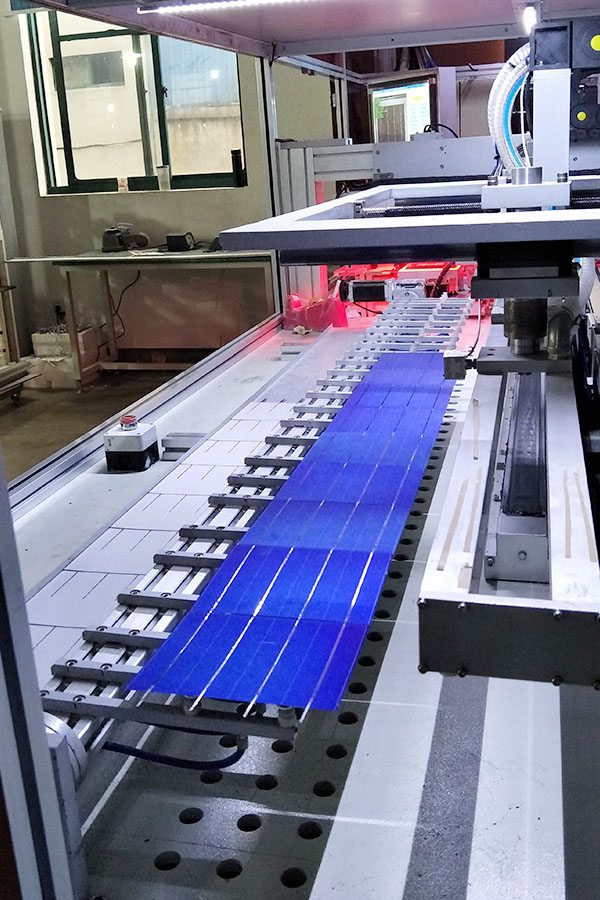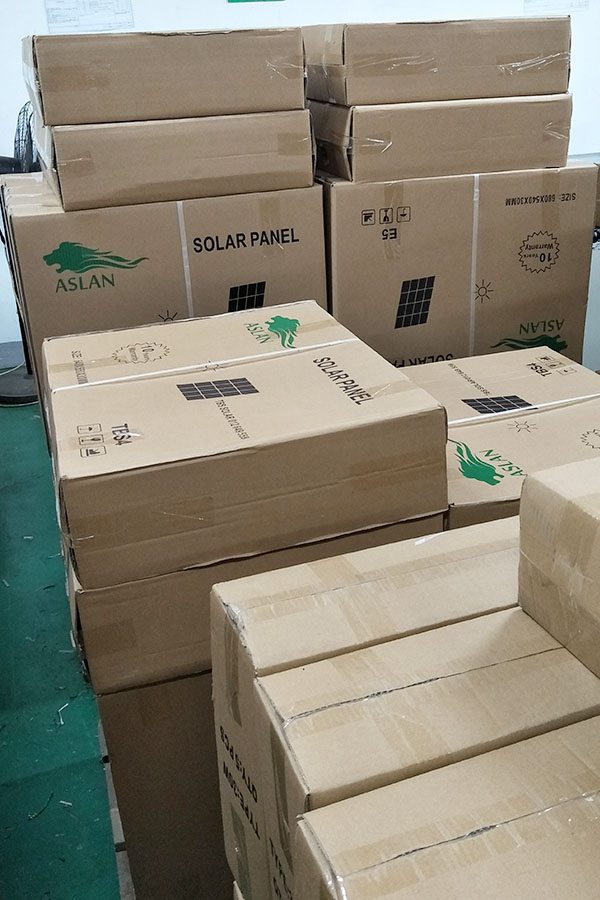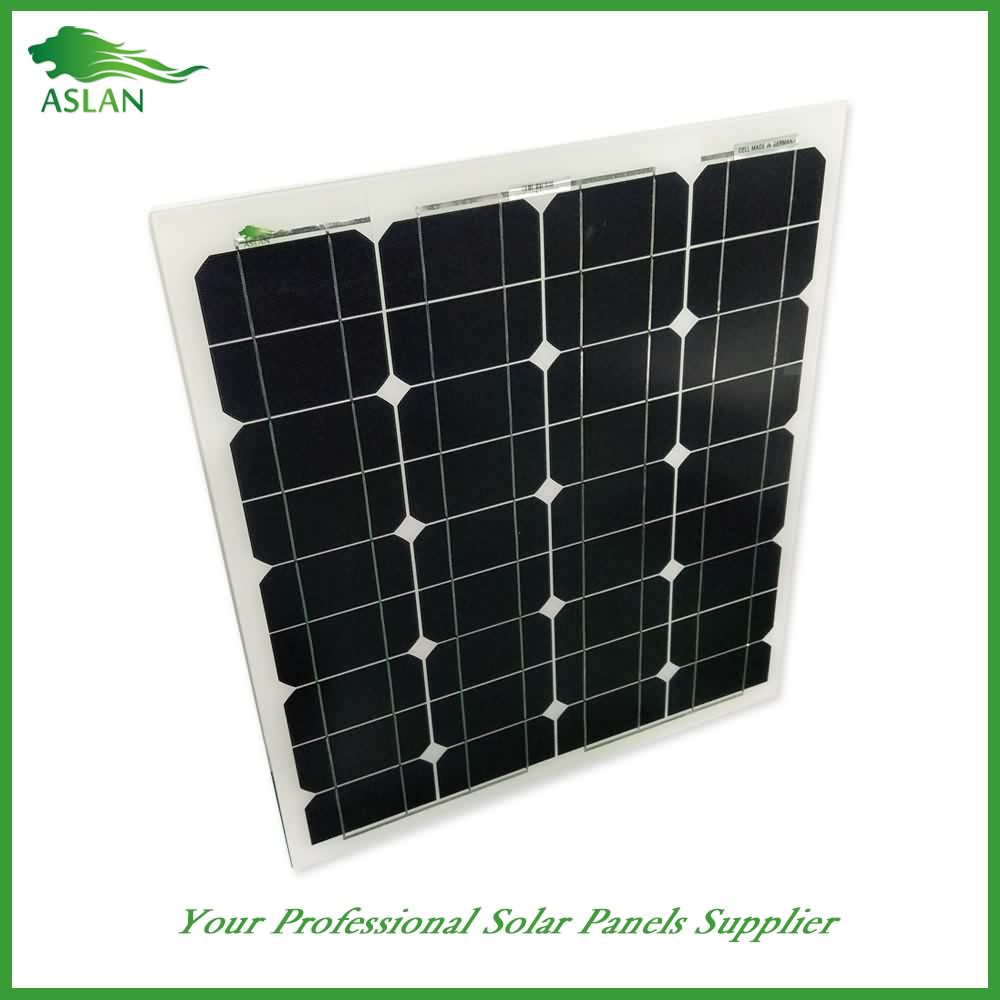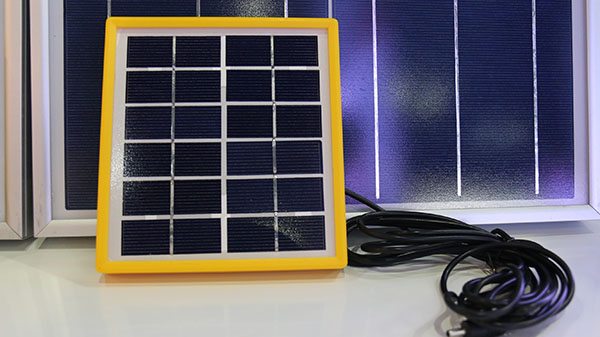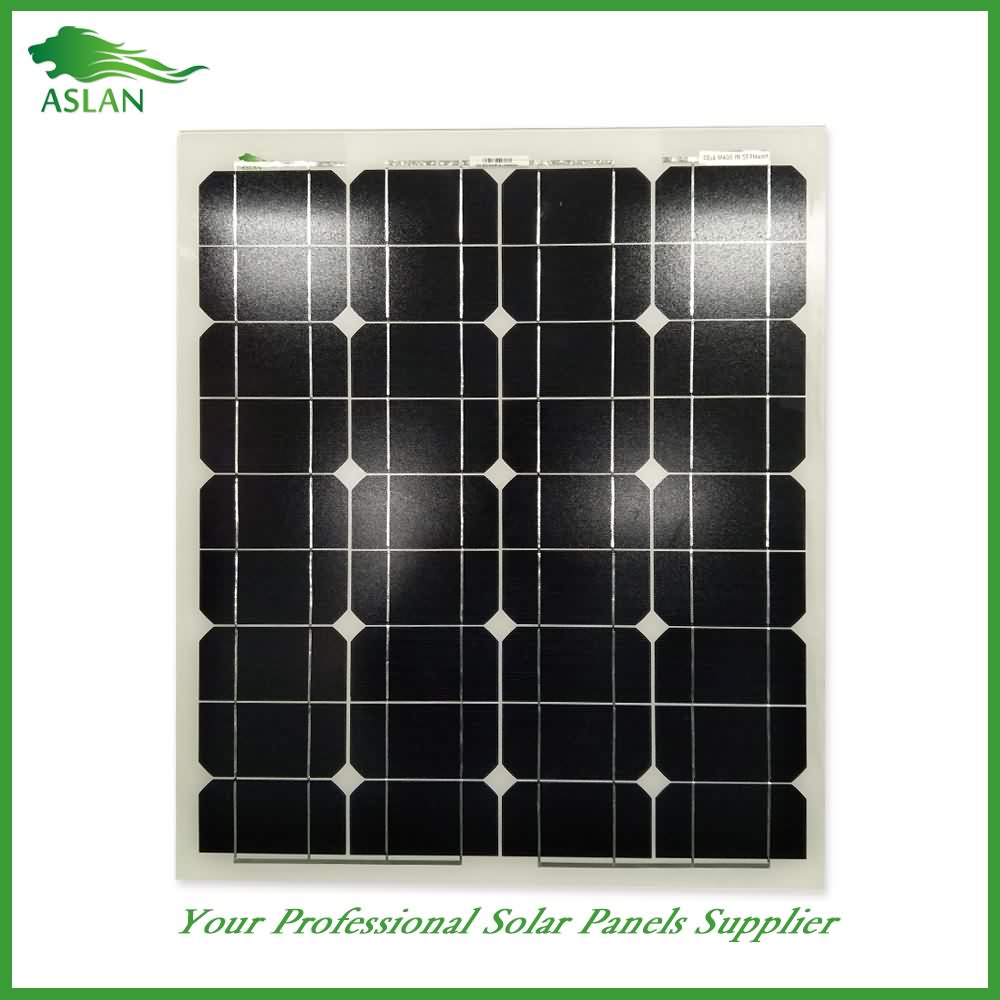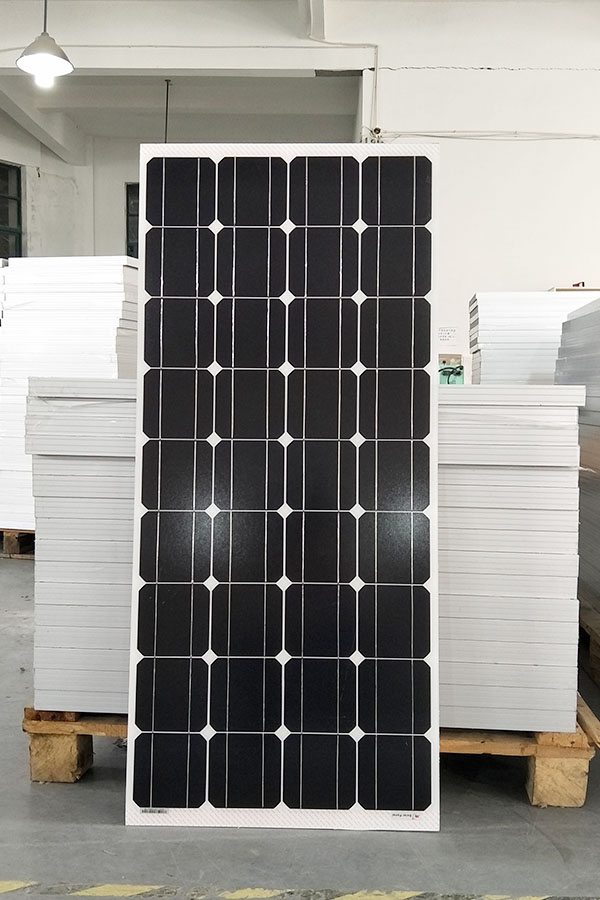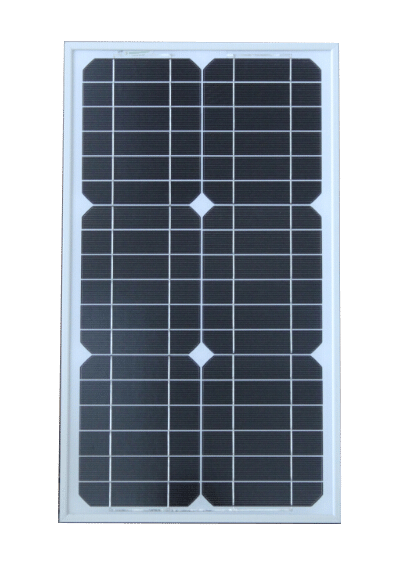80% OFF Price For Poly-crystalline Solar Panel 90W kazan Manufacturers
Short Description:
Our products are widely recognized and trusted by users and can meet continuously changing economic and social needs for 80% OFF Price For Poly-crystalline Solar Panel 90W kazan Manufacturers, We warmly welcome business partners from all walks of life, expect to establish friendly and cooperative business contact with you and achieve a win-win goal.
Poly-crystalline Solar Panel 90W
Technical parameter
Maximum Power(W) 90W
Optimum Power Voltage(Vmp) 18.33V
Optimum Operating Current(Imp) 4.91A
Open Circuit Voltage(Voc) 21.96V
Short Circuit Current(Isc) 4.89A
Mechanical Characteristics
Cell Type Poly-crystalline 156x104mm (6 inch)
No of Cell 36 (4x9pcs)
Dimensions 1008x678x35mm
Weight 8.0KGS
Front Glass 3.2mm,High Transmission, Low Iron,Tempered Glass
Junction box IP65 Rated
Output Cable TUV 1×4.0mm2/UL12AWG,Length:900mm
Temperature and Coefficients
Operating Temperature(°C): -40°C ~ + 85°C
Maximum System Voltage: 600V(UL)/1000V(IEC) DC
Maximum Rated Current Series: 15A
Temperature Coefficients of Pmax: -0.435%
Temperature Coefficients of Voc: -0.35%
Temperature Coefficients of Isc: 0.043%
Nominal Operationg Cell Temperature (NOCT): 47+/-2°C
Materials of solar panel
1).Solar Cell——Poly-crystalline solar cell 156*104mm
2).Front Glass——-3.2mm, high transmission, low iron, tempered glass
3).EVA——-excellent anti-aging EVA
4).TPT——-TPT hot seal made of flame resistance
5).Frame——anodized aluminum profile
6).Junction Box——-IP65 rated, high quality, with diode protection
Superiority: high quality anodized aluminum frame, high efficiency long life, easy installation, strong wind resistance, strong hail resistance.
Features
1. High cell efficiency with quality silicon materials for long term output stability
2. Strictly quality control ensure the stability and reliability, totally 23 QC procedures
3. High transmittance low iron tempered glass with enhanced stiffness and impact resistance
4. Both Poly-crystalline and Mono-crystalline
5. Excellent performance in harsh weather
6. Outstanding electrical performance under high temperature and low irradiance
Quality assurance testing
Thermal cycling test
Thermal shock test
Thermal/Freezing and high humidity cycling test
Electrical isolation test
Hail impact test
Mechanical, wind and twist loading test
Salt mist test
Light and water-exposure test
Moist carbon dioxide/sulphur dioxide
EP1-Mercury is one of the most mysterious and unexplored planets in our solar system, but what would it be like if you could stand on its surface? Check out this video to find out! And make sure to check back soon for the next episode in the solar system series!
**REMEMBER TO SUBSCRIBE FOR MUCH MORE TO COME**
Today I Found Out Channel -
https://www.youtube.com/user/TodayIFoundOut
FʘLLʘW THE VENDOR 101
Subscribe – https://www.youtube.com/c/TheVendor101
—————————————————————————————————-
Google+ – https://plus.google.com/+TheVendor101
—————————————————————————————————-
Twitter – https://twitter.com/thevendor101
—————————————————————————————————
Facebook – https://www.facebook.com/pages/The-Vendor-101/662083050479571
—————————————————————————————————
Script –
Living on Mercury would be a very difficult task for mankind, it’s the closest planet to the sun and it experiences extreme fluctuations in temperatures, with near to no atmosphere.
When imagining Mercury, most people think of it as being a burning red colour, perhaps because of it’s extreme proximity to the sun, but in reality it is much more grey and Moon-like. Mercury is a mysteriously complex planet, but if we had the technology to survive on its surface, what would It be like? Well, firstly we would have to deal with the severe temperature changes, throughout the Day temperatures on the planet can reach 800 degrees Fahrenheit (430 degrees Celsius) and throughout the night temperatures can plummet to minus 290 degrees Fahrenheit (minus 180 degrees Celsius). If you could somehow survive the blistering heat though out day and looked up in to the sky, you would see the sun, but it would look 2.5 times larger than it does in the Earth’s sky. You would have plenty of time to enjoy the suns rays as on Mercury one day lasts almost 59 Earth days. However the sun wouldn’t be surrounded by a beautiful blue sky, Mercury’s sky would be black because the planet has virtually no atmosphere to scatter the sun’s light, which also been the stars wouldn’t glisten. The surface however would feel calm, as without an atmosphere the planet does not have any weather events. But you would be able to see a violent history though Mercury’s surface scars, it’s surface is littered with Craters and Basins of all sizes. It is the smallest planet in our solar system and has about 38 percent the gravity of earth, which would mean you could jump 3 times as high as you can now. Over many years, we have been sending probes off in to space, in the aim of learning more about out planetary neighbours, but Mercury is the least explored. This is probably because it is generally less likely to contain evidence of life or even allow us to colonise its surface one day in the future. But with all its extreme characteristics, it is definitely one of our solar systems most interesting members.
Attributes –
Mercury transiting Sun – Footage Wonderland
ESO – Planetary Footage
Nasa – Mercury Pictures
Music –
“Last Hope” by Incomptech
“Hurry Up” YouTube Audio Library
Licensed under Creative Commons: By Attribution 3.0
http://creativecommons.org/licenses/by/3.0/
A detailed tour of the 340 watt solar power system in our Northstar Laredo truck camper. Our system consists of two 120 watt polycrystalline roof-top solar panels, a Renogy portable 100 watt monocrystalline solar panel, a Zamp 30 amp PWM charge controller, and two Lifeline 6v AGM batteries. Check us out at truckcamperadventure.com
